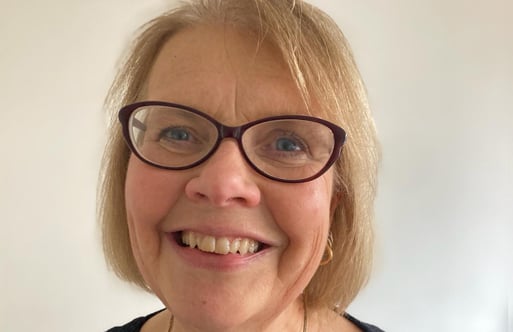But, this is not happening in enough schools and not happening quickly enough due to the increasingly challenging circumstances schools face, which is leading to a loss of momentum that’s worrying.
We can’t go on as we are and need to act to ensure that every child has access to a high-quality computing education in every school. And to make that happen we need confident and capable computing teachers in every school. The BCS-run Network of Teaching Excellence in Computer Science (shortened to NoE) can and is making a positive difference, we know for example that in schools offering GCSE computer science, that are part of the NoE, larger cohorts of students achieve better grades than in schools that are not part of the NoE.
It’s no exaggeration to say the world is watching what we do, and is moving fast to catch us up and then outdo us. Collectively we need to get behind our schools and our teachers, harnessing local expertise in our universities and schools, to address the challenges we now face to ensure our country remains a world leader in computing education and ensures a thriving digital economy over the long term. And, we need to do it now.
We’ve come a long way, but we now face new challenges
We’ve seen amazing progress since computing was introduced into the national curriculum in 2014, and we’re leading the world in this field. Back in 2010 many were questioning the value of the then ICT curriculum. Whereas now, most recognise, including schools, parents, universities, employers and government, that computing with computer science as its core, is an important subject discipline that develops the thinking skills, knowledge and understanding that are essential for every student. Essential because we need our children to be effective, capable and safe citizens in an ever-changing digital world.
Recent changes across a wide range of factors mean we urgently need to act and accelerate the development of teaching capacity, capability and confidence. Those factors include: the changes to the subject content for GCSE Computer Science, the challenge to recruit and retain sufficiently qualified teachers, the demise of GCSE ICT, resources to enable teachers to retrain from ICT to Computing, and the squeeze on school CPD budgets have all exacerbated the fragility of the subject in many of our schools.
Over 67,000 students sat Computer Science GCSE in 2017
One objective measure of the success of the new computing curriculum is the number of students taking computer science at GCSE. In 2013 almost no one took the computer science GCSE; in 2017 over 67,000 students have been entered, which is a staggering achievement against the odds, and in such a short time. At the same time, that number is also an indication of just how far we have to go. It’s roughly 12% of all GCSE candidates. That is a lot of children gaining a truly worthwhile education, but it’s not enough. On its own that figure need not be a cause for concern, but the year on year increases since 2013 have not been repeated in 2017. Rising by just 10% this year, rather than doubling as had previously been the case, is a strong signal that something is not right and more needs to be done.
Many teachers feel challenged by GCSE syllabus
Last year we started hearing from many teachers that they were feeling very challenged by the new computer science GCSE syllabus that had just been introduced. This is a much more rigorous and demanding GCSE and many computing teachers felt they weren’t equipped to successfully deliver it due to a lack of computer science subject knowledge.
We also heard that head teachers were becoming more and more reluctant to allow computing teachers to attend CPD during school hours, because it was hard to get suitable cover for them while they were absent. There are many challenges in recruiting and retaining good computing teachers, which means those that are left have increased workloads and less time to get things done. That means many schools have less capacity to teach computing than they need if they are to significantly increase the number of students taking computer science at GCSE.
End of ICT GCSE imminent
Finally, ICT GCSE is coming to an end next year. We would have liked to have seen a new IT GCSE to complement the GCSE in Computer Science and strongly argued for one at the time, however, government’s view was that this would overcrowd the curriculum. At the time that was a reasonable judgment call to make given the available data, but disappointing all the same. While the ICT GCSE existed, there were qualifications covering more of the computing curriculum than just the scientific part, which meant more students had access to at least some sort of computing GCSE.
All these factors combine to spell trouble that needs addressing urgently. If we don’t then over the medium term the future success of computing in schools will be seriously undermined. This will have a significant knock-on effect for the chances of long term economic success in our post-Brexit world.
What’s worked well so far and could be expanded to help more in the future
The Computing At School group (CAS), which is part of BCS, is a volunteer community of professionals from schools, universities, and from world leading companies such as Microsoft, Google, BT, ARM, Cisco, the BBC and many others. CAS has been pivotal in bringing about the introduction of computing in English schools, and is helping schools across the country make huge strides in the teaching of computing.
Communities such as CAS provide the essential social and professional glue that supports teachers develop as professionals and makes a real difference to teacher retention, but that’s a different proposition than rapidly training thousands of teachers with a deep knowledge of computer science.
Not for want of enthusiasm
Teachers have put an incredible amount of energy and enthusiasm combined with sheer hard slog into giving a great many children the high quality and inspiring computing education they need. Time and again we hear from teachers that it’s the support they get from the wider computing community through CAS that’s made a real difference to them personally and professionally.
CAS makes a real difference
Underpinning that CAS volunteer support is the BCS-run Network of Teaching Excellence in Computer Science. This is a national network that builds local institutional partnerships between schools and universities that helps teachers become enthusiastic, confident and capable teachers of computing. It’s a community driven network powered by volunteers who are our CAS Master Teachers, but made possible by a small team of full time coordinators hosted in ten university regional centres.
The NoE receives it core funding from the DfE. Without that funding it could not exist, but it also receives financial and pro-bono support beyond the DfE grant. That comes from Microsoft, Google and many others including the BCS and not forgetting the ten universities who are the NoE regional centres. DfE funding pays for the recruitment and training of CAS Master Teachers. DfE funding also pays for the ten university regional centres to locally coordinate the NoE, though the universities have provided twice as many people to coordinate the project than they receive funding for. Part of the funding also subsidises the BCS’s costs of coordinating the project nationally.
47,000 teacher-hours of CPD last year
The NoE has been highly successful in its primary aim of building a national infrastructure that underpins the CAS volunteer community and means they are far more effective. In this last year, the NoE put in place over 46,700 teacher-hours1 of CPD and support to 14,445 teachers in both primary and secondary schools. We now know the NoE is starting to move the dial at the national level. We’ve written up the latest evidence for this in an initial evaluation of the impact of the NoE on learning outcomes for students. The bottom line is those schools offering GCSE computer science that are part of the NoE have attracted larger cohorts of students and they have achieved better grades than schools that are not part of the NoE.
The fundamental ethos of CAS underpinned by the NoE of community support delivered face to face through professional volunteers and through crowd sourced online resources is proving to be an astounding success envied the world over.
The CAS community is essential to the continued success of computing in schools, but it is not sufficient given the new challenges schools are facing. In addition to all that CAS does, we need to set up an extensive training programme for all computing teachers to make sure they have the depth of computer science subject knowledge, coupled with the pedagogical knowledge to make the new GCSE a resounding success. They need to be able to teach their subject with confidence, to take on new subject areas such as machine learning and cyber security, and ensure at least a third of all GCSE students take computer science as an option, not just 12% as is now the case.
Next steps
In the UK the organisations with the capacity and expertise to provide the kind of computer science training teachers need are the universities. In addition, there are many highly competent organisations (for example NCTL amongst others) who have the experience and capacity to commission and performance manage the delivery of the kind of national, university based training programme now needed. The NoE has proved university computer science departments in collaboration with university education departments and working with the CAS community can provide training to teachers that is scalable, impactful and value for money. So, let’s give our universities the funding they need to deliver extensive computer science subject knowledge training to every teacher who needs it.
BCS with CAS have the expertise, experience and professional communities that give them a mandate to help steer the vision, strategy and standards for such a programme to ensure it genuinely enables all schools to teach the computational thinking skills that are essential for the digital age we live in. As teachers develop their depth of computer science subject knowledge expertise through the new training programme, CAS will provide ongoing long term support as the national community of professional practice, which is essential if we want a sustainable education system that develops and retains our computing teachers for as long as possible.
Next, we just need to get on and do it.
1 That’s the number of teachers receiving CPD multiplied by the number of hours of CPD each teacher received

















